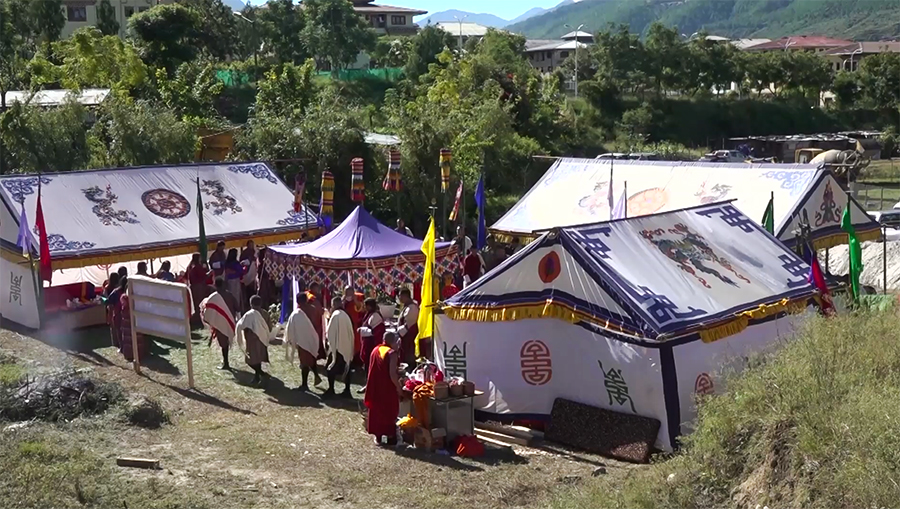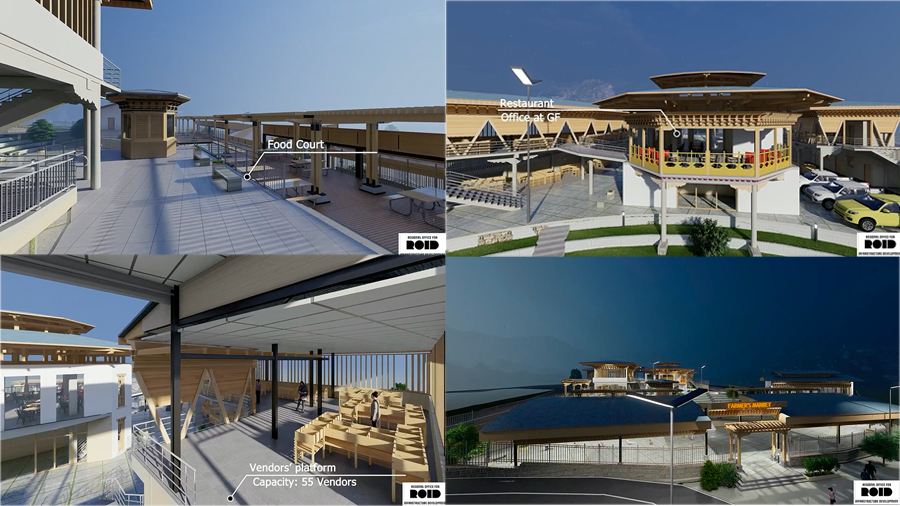 In just over one and a half years, vegetable vendors in Bajo town in Wangdue Phodrang will finally get the space they have long been waiting for. A new Farmers’ Market is expected to be ready by 2027, providing a spacious and comfortable facility for farmers, vendors and shoppers.
In just over one and a half years, vegetable vendors in Bajo town in Wangdue Phodrang will finally get the space they have long been waiting for. A new Farmers’ Market is expected to be ready by 2027, providing a spacious and comfortable facility for farmers, vendors and shoppers.
The new market will be constructed above the Bajo fuel depot on about two acres of land.
 The groundbreaking ceremony for the construction was held yesterday.
The groundbreaking ceremony for the construction was held yesterday.
According to the district administration, Nu 48 M has been allocated for the project through the Government of India’s High-Impact Community Development Projects (HICDP) grant.
Rinzin Wangchuk, Planning Officer of Wangdue Phodrang said, “In the new market, there will be designated spaces for imported vegetable vendors and local produce sellers from the 15 gewogs of Wangdue Phodrang. Currently, there are 30 vegetable vendors at the existing market, but the new shed will accommodate more than 50 vendors. In addition, there will be space for over 200 local vegetable sellers.”
 The new market will have a cafeteria, open-air theatre, washrooms, and ample parking space. It will have designated spaces for imported and local vegetables and dairy products.
The new market will have a cafeteria, open-air theatre, washrooms, and ample parking space. It will have designated spaces for imported and local vegetables and dairy products.
Once the new market is completed, the Bajo Thromde Ngotshab said they plan to repurpose the existing market area for meat shops.
 At present, vegetable vendors continue to operate in a cramped and congested space.
At present, vegetable vendors continue to operate in a cramped and congested space.
Many farmers are forced to sell their produce in open areas and along roadsides, braving the dust and harsh weather.
Sangay Zangmo, a vegetable vendor said, “We don’t even have enough space to display 15 trays of vegetables. There is a risk of our produce getting spoiled, especially during summer. Forget about making a profit, we often end up throwing away vegetables during the summer.”
Kinley Dorji, Thromde Ngotshab of Bajo town said, “Many vendors are finding it difficult to maintain the quality of their vegetables. Conflicts also arise frequently between vendors and Thromde officials, as well as between imported vegetable sellers and local farmers.”
Once completed, the new market is expected to ease long-standing space constraints and provide a clean, safe, and more organised space for vendors and farmers alike.
Changa Dorji, Wangdue Phodrang
Edited by Tshering Zam









